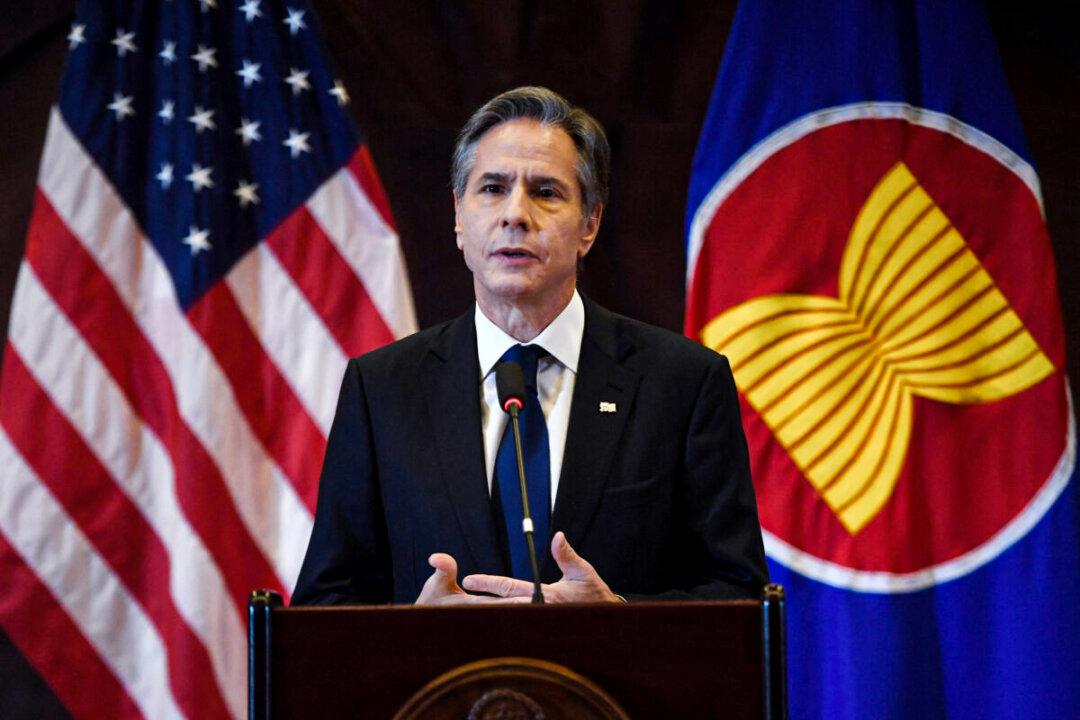Secretary of State Antony Blinken said in a policy speech on Dec. 14 that the United States will “advance a free and open Indo–Pacific,” and hit out at China for its aggressive actions in the region.
“We’re determined to ensure freedom of navigation in the South China Sea, where Beijing’s aggressive actions threaten the movement of more than $3 trillion worth of commerce every year,” Blinken said during the speech at the University of Indonesia on Tuesday.



